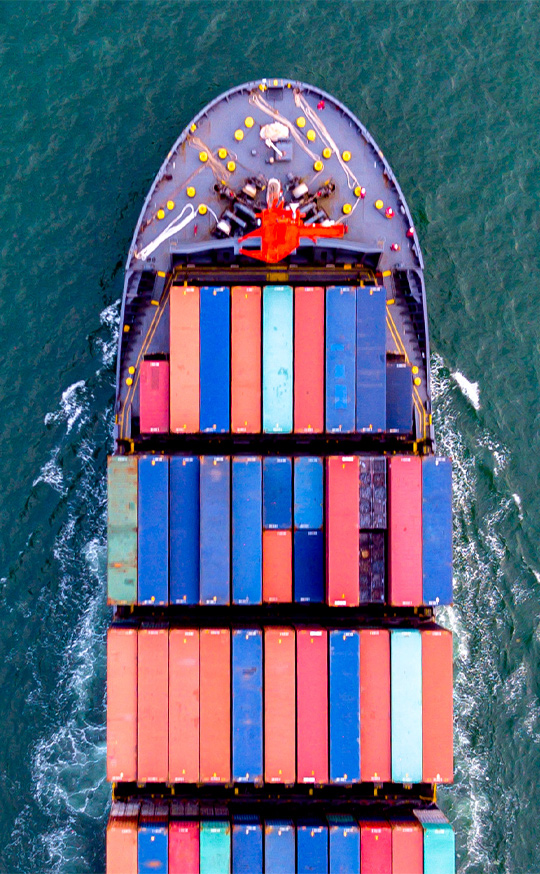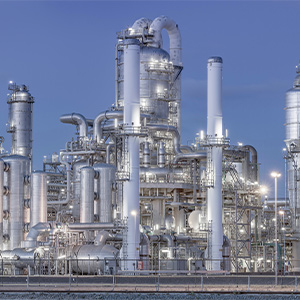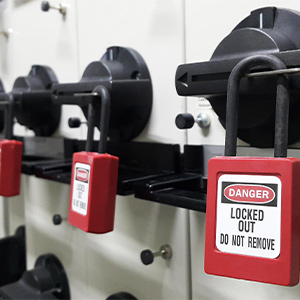Exporting Machinery To The USA
Post By: Tom Rowse On: 17-11-2020 - Manufacturing - Safety
If you’re an OEM (original equipment manufacturer) who's thinking of breaking into the North American market, there are a few legal and safety requirements that you must fulfil. The machines you produce for the UK or European market will have a different set of regulations, and will be constructed for a different infrastructure. Exporting your machinery to the USA will therefore require some modifications to be made. The same also applies to anyone transporting existing equipment to a North American facility, and those who might have acquired used equipment (or any machinery without the proper certification) for use in the USA.
OSHA And Jurisdiction
In all instances, you must comply with all the existing electrical safety requirements in the machine's new destination. Many local jurisdictions in the USA will not permit the installation or use of 'unlabelled' equipment at any commercial or manufacturing sites within their communities. If any unlabelled equipment is discovered in use by local inspectors, they are within their rights to ban the business from turning it on. They may also be subject to a fine or closure of your premises by the Occupational Health & Safety Authority, OSHA, in the United States. Further, anyone found using non-compliant machinery runs the risk of being hit with liability-related lawsuits.
If you can meet the relevant local safety requirements and are keen on exporting machinery to the USA, you must therefore ensure that all equipment is appropriately certified. There are two ways of doing this in North America. The first is known as Field Labelling, and there’s a more complex certification by the Nationally Recognized Testing Laboratory (NRTL). Not all OEMs are clear about which one of these to pursue, particularly as the NRTL certification is part of both labelling systems.
As in British and European jurisdictions, all electrical and electronic products used in North America are subject to a set of standards and regulations. The NRTLs are third-party private bodies who run the certification programme under the authority of OSHA. They satisfy the legal requirements of the standard known as 29 CFR 1910.7, insofar as it concerns services for safety testing and certification of equipment.

Field Labelling
Field labelling is a system that requires an approved NRTL to evaluate and certify machinery on-site, and is a more effective approach for bespoke or low volume machine production. It's an essential requirement for anyone wanting to export machinery to the USA and usually takes three or four days. It's done in two parts – firstly at the OEM's site in Britain or Europe, and secondly in the USA when the equipment has been installed. If it meets all the requirements, the NRTL engineer will then affix the Field Label.
OSHA requires that all machinery is approved before it can be used in places of work that fall within the jurisdiction of municipal, county and state OSHA authorities. These AHJs (Authorities Having Jurisdiction) enforce the safety requirements for their own particular locations, and are responsible for the approval of the equipment itself, its installation and operating procedures. AHJs also recognise lists of approved products that are published by OSHA-approved organisations. All OEMs and end-users of machinery in the USA must review these periodically for any amendments to the listed equipment.
Periodic ad-hoc inspections are also carried out by AHJs on listed equipment. These ensure that it is still in compliance with local safety requirements, and is being used for its designated purpose. During such inspections, this mandatory label is required to prove that the equipment meets local regulations and standards. Field Labelling and listing are part of NRTL's field evaluation services, which also include National Electrical Code (NEC) inspections.
NRTL Certification
NRTL certification is a more in-depth process which tests and certifies specific types of product. It ensures that they comply with relevant safety standards and are safe for operation in the workplace. Testing includes the capabilities of the equipment, its complete independence, control programmes and procedures for reporting and complaint handling. An NRTL organisation must therefore function as both safety testing laboratory and certification body.
If you're exporting bulk machinery or mass-produced products to the USA, NRTL certification will be required for acceptance by OSHA. Full type-testing will be carried out on product samples, and there will be ongoing factory audits.
'Properly NRTL certified', as defined for acceptance by OSHA, usually means the following:
- The product carries the registered certification mark or label of the NRTL.
- The NRTL issues a product certification for equipment covered within the scope of an OSHA-recognised test standard.
- The product certification is issued from an OSHA-recognised NRTL location.
Approved Components
It's vital for manufacturers exporting machinery to the USA to recognise that safety-critical components, such as cables and fuses, are also subject to NRTL certification. The field labelling process will be faster and smoother when both OEMs and end-users understand this and comply with the regulations. This is not as daunting as it seems, since most reputable components already have dual certification, from both NRTL and Europe's IEC. It should not therefore be necessary for manufacturers to design a separate product for the USA market.
Awareness and compliance with the NRTL and Field Labelling requirements on exported machinery can dramatically expand your potential market, and improve the saleability of your machines. You will also reduce your overall liability to prosecution through compliance with these standards. In addition, North American end-users will reduce costly down-time when their OEM is diligent on this front, being assured that every imported piece of equipment they use is in compliance.
Get More From Rowse Straight To Your Inbox




